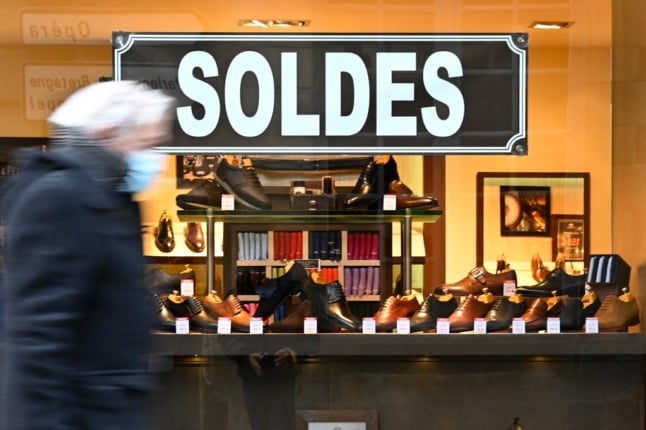The sales period was due to begin on June 23rd and last until July 20th, but this been pushed back by a week, the ministry announced, starting instead on Wednesday, June 30th.
Finance minister Bruno Le Maire told radio station France Inter that he had proposed the delay.
“It seems to me that we should not delay [the sales] by too much, in order to make the most of the bounce in consumption,” he said, following the reopening of “non-essential” shops on May 19th.
.@BrunoLeMaire : "Je propose que les #soldes soient décalées au 30 juin" #le79inter pic.twitter.com/OcAuWNYYOq
— France Inter (@franceinter) May 27, 2021
“We had many discussions with business representatives. I know that lots of small retailers say we should delay the sales. What I noticed is that, last year, we pushed them back until mid-July, and the results were unconvincing,” Le Maire said.
The Commerçants de France (CDF) business association was among those pushing for a longer delay.
“The CDF is asking for businesses to be able to sell their products and collections for the current season at the original price, without discounts, for at least a few weeks following the resumption of activities,” it said in a press release last week.
Last winter, France extended the sales period by two weeks, in order to compensate for the 6pm curfew.
Sales in France are strictly regulated, with the government setting dates for two annual sales periods – one in summer and one after Christmas. Discounting outside the official sales periods is only allowed in specific and limited circumstances.



 Please whitelist us to continue reading.
Please whitelist us to continue reading.
So explain how this is going to help shops? Sales are about getting people into shops to buy a bargain or buy something they spot whilst in the shop. Have any of this Government actually run any type of retail business?